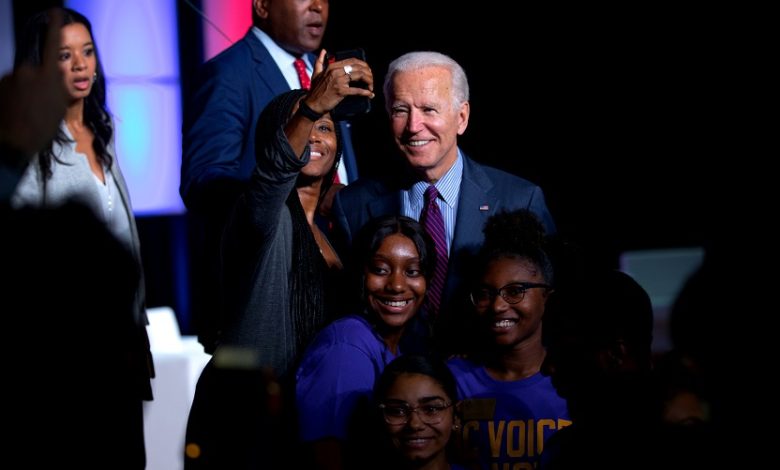
President Joe Biden’s second term aspirations may significantly hinge on the avid backing of Black voters. Reflecting on his 2020 victory against former President Donald Trump, it was the decisive endorsement from Black South Carolina voters that ignited Biden’s successful campaign. Conversely, a potential lack of enthusiasm among Black voters in the upcoming 2024 elections could jeopardize Biden’s chances of securing another term.
A comprehensive Ipsos-Washington Post poll recently conducted paints a nuanced picture of Biden’s standing with Black Americans. Although the president has struggled to persuade Black voters that his policies have enriched their lives, he still maintains a commendable approval rating among this group.
This survey, publicized on Wednesday, May 24, questioned over 1,200 Black Americans between April 28 and May 12, concerning their views on Biden’s performance. A solid two-thirds (66 percent) of respondents gave a positive nod to Biden, which is notably higher than his approval rating among the general American population, which stands at 36 percent, as per The Washington Post.
However, the numbers tell a different story when it comes to the perceived impact of Biden’s policies on the Black community. Only about one-third (34 percent) believe that Biden’s administration has been beneficial for them, while nearly half (49 percent) reported that his policies have had no discernible effect on their lives.
Moreover, throughout his term so far, Biden has been met with unrelenting resistance from Republicans, a challenge that remained persistent even when Democrats held sway in both chambers of Congress during his initial two years. For instance, Biden’s attempts to pass voting rights legislation, a critical item on his agenda, foundered in the Senate.
Following the 2020 presidential election, in which Donald Trump was defeated, a series of voting constraints were introduced by Republican legislators in multiple states. The justification given was the need to counteract voter fraud, despite its proven rarity. Critics suggest these regulations disproportionately affect Black voters. As reported by the Brennan Center for Justice, these voting limitations began to surface in 2021, with 42 restrictive laws passed in 21 states, predominantly in Republican-led, racially diverse regions.
In a countermove, Democrats brought forward the John Lewis Voting Rights Advancement Act, specifically designed to combat voter suppression and restore the enforcement measures of the 1965 Voting Rights Act. Despite its passage through the House, the legislation hit a snag in the Senate due to the filibuster rule, which necessitates 60 votes for the progression of specific bills.
Another point of contention has been President Biden’s plan for student loan debt relief, introduced in August. According to The Institute for College Access and Success, Black college graduates tend to borrow more than other racial and ethnic groups, with over 80 percent owing an average of $34,000, and they also default at a higher rate. However, this plan met opposition from about two-dozen Republican governors, leading to its current stasis as the U.S. Supreme Court assesses its constitutional validity.
Legislation concerning police reform, too, experienced deadlock in Congress. The proposed George Floyd Justice in Policing Act, which gained significant support following George Floyd’s tragic death in May 2020 at the hands of a former White Minneapolis police officer, was stymied due to a legislative standstill in 2021.
Nevertheless, a survey reveals an interesting perspective among Black voters: only 8 percent would express anger if Biden secured another term, in stark contrast to the nearly 80 percent who indicated they would be “angry” if Trump returned to the White House in 2024. This suggests that, despite legislative disappointments, the majority of Black voters appear to support the current administration over its predecessor.





Leave a Reply